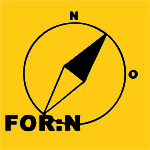Climate change has resulted in the emergence of many new opportunities and challenges for the Arctic region. The melting of the ice cape will facilitate access to oil, gas and mineral resources (including the strategically important rare earths) in the future and promises unprecedented prosperity for the peoples of the Arctic. However, their possible future exploration also raises a number of fundamental challenges. Who actually owns the North Pole? Canada, Denmark, Norway, Russia and the US are all competing in a series of territorial disputes over control of the Arctic region. What are the security policy implications of new sailing routes close to the North Pole and the dangers of maritime transport? Increasing Chinese and other foreign states‘ interests in the Arctic has also raised the question about who will be allowed to participate in the exploration of the Arctic’s natural resources. How estimate the role of foreign companies and NGOs like Greenpeace in the area? And last but not least: What social and other consequences will climate change and the possible exploration of oil, gas and mineral resources have on the Arctic peoples‘ traditional ways of life, on seal hunting, whaling and fishing?
Klavs A. Holm trat nach seinem Studium der Politikwissenschaften an der Universität Aarhus 1980 dem Dänischen Auswärtigen Dienst bei. Seine diplomatische Karriere führte ihn nach Paris und London sowie zur ständigen Vertretung Dänemarks bei der EU in Brüssel. 2005 wurde er dänischer Botschafter in Singapur (ebenso akkreditiert für Australien, Neuseeland und Brunei), bis er 2007 als Unterstaatssekretär die Leitung der neu geschaffenen Abteilung für „Public Diplomacy“ übernahm. Seit 2012 ist Klavs A. Holm Unterstaatssekretär für arktische Angelegenheiten und Dänemarks erster Arktischer Botschafter.
OBS! Ort und Zeit: Dorotheenstr. 24, Haus 3, Raum 3.134 „Georg Brandes“; 31. Januar 2013, 18.00 Uhr.
